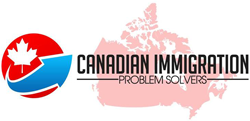Canada Study Permits
Canada Study Permits
Canada welcomes hundreds of thousands of foreign students each year and is a top destination for many international students looking for a high quality, internationally recognized education.
How many study permits are issued?
In 2017, Canada issued 317,328 study permits to international students. Most study permit applications submitted overseas were finalized within two months.
Transition to Permanent Residence
There are many ways in which having a study permit can provide a pathway to permanent residence. Many programs of study allow students to work part time during their studies and full time during breaks. They can also permit students to obtain a Post Graduate Work Permit after the completion of their program. This can provide valuable Canadian work experience that can later be used to support an application for permanent residence under the Canadian Experience Class.
In 2017, Canada admitted as permanent residents 9,410 individuals who had previously held a study permit as an international student, as well as 49,557 individuals who had previously held a work permit.
How to obtain a Study Permit
Foreign students who have applied to and been accepted by a Designated Learning Institution (DLI) may apply for a Canada Student Visa. If approved, this will allow the student to come to Canada in order to study at the school they have been accepted to. The first step in the process is to decide on the school and program that you want to study in. Once accepted, the institution will provide you with a Letter of Acceptance that you will need in order to apply for your Study Permit.
The following will be required in order to file an application for a Study Permit:
Letter of Acceptance from a Designated Learning Institution (DLI) in Canada.
Proof that you have enough money for the duration of your stay in Canada to pay for:
tuition fees,
living expenses for yourself and accompanying family members, and
transportation costs to and from Canada for yourself and accompanying family members.
You must not be inadmissible for security, criminal or health reasons.
You must be able to demonstrate that you will leave Canada by the end of your authorized period of stay.
University of Windsor
Canadian Immigration Problem Solvers is proud to be an Official Educational Agent of the University of Windsor, one of the most respected universities in Canada. As an Educational Agent of the University of Windsor, we can assist you with both the application process, as well as assessing your chances of successfully obtaining admission to your program of choice.
I would encourage you to visit the University of Windsor website to learn about the school as well as to see the list of programs available. If you find a program you are interested in, please contact us and we can start the application process. Once accepted we can then prepare your application for a Study Permit to Canada.
Extending your Stay or Changing Schools/Program
If you would like to stay in Canada past the time listed on your Study Permit you will need to apply to do so. Depending on your situation, this may take the form of an application to extend your stay as a student, or to change your status to a visitor or worker.
If you decide to change programs or schools, you may either need to submit a formal application to extend or change the conditions of your permit, or you may simply need to update your school information in your online account with Immigration Canada.
Moving to the next education level
As of April 11, 2019, students transitioning between levels of study (primary, secondary and post-secondary) are no longer required to apply for a new study permit, provided their current study permit is still valid.
Post-secondary students changing schools
If you change post-secondary schools, the school you plan to change to must also be a Designated Learning Institution (DLI) and you must update your school information in your online account with Immigration Canada. You don’t need to apply to change your study permit if you are changing one of the following post-secondary schools.
university
community college, CEGEP, institute
private university, career college, academy, school or training institution and
ESL/FSL and other language training.
Working while Studying
Students enrolled in a full-time program may work on-campus or off-campus without a work permit under certain conditions. In many cases, this will allow students to work for up to 20 hours per week off campus or full time during regular breaks. Certain conditions apply, and you must ensure that you are eligible to work prior to doing so.
Post-Graduation Work Permit
Once you have graduated, you may apply for a Post-Graduation Work Permit if certain conditions are met. This will grant a foreign student with an Open Work Permit that is valid for up to three years. Students do not require a job offer for this work permit, and it will allow them to work for any employer that they choose.
Spouse/Common-law partner Open Work Permit
Under certain conditions, spouses and common-law partners of international students may apply for their own Open Work Permit. This will allow them to work in Canada, without requiring a job offer, for the same amount of time that their spouses study permit is valid for. A spouse’s work experience gained under this type of work permit can also be used to support an application for permanent residence under the Canadian Experience Class.
Need Help?
If you would like more information on your options for studying in Canada or for admission to the University of Windsor.

